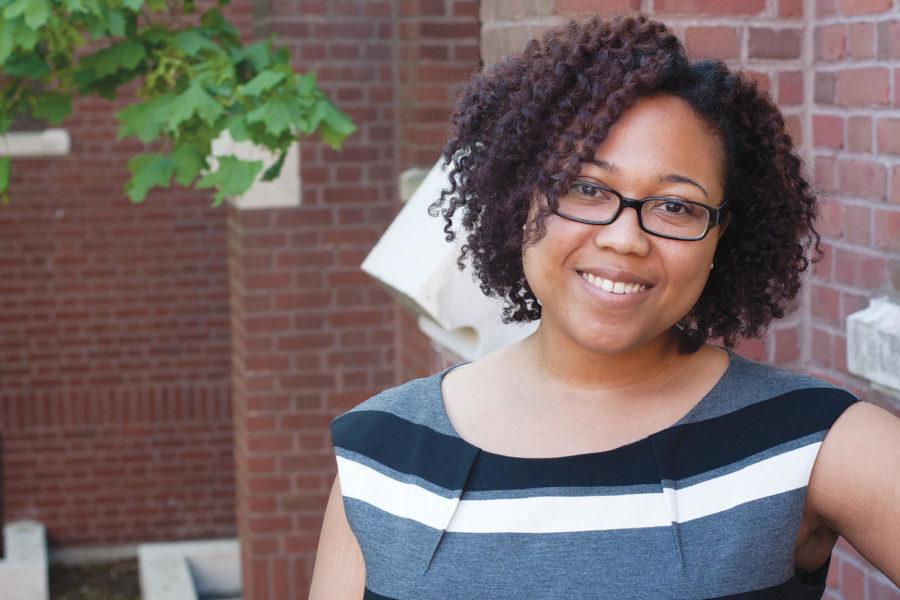Professor studies inequalities between women of color, society
Photo: Ryan Riley/Iowa State Daily
Natasha Croom, assistant professor of educational leadership and policy studies, is one of the founders of the the ISU Womyn of Colour Network.
April 10, 2012
In the Declaration of Independence, there is a sentence that states “all men are created equal.” Natasha Croom, assistant professor of educational leadership and policy studies, has focused her research on discovering more about the inequalities between women of color, particularly African-Americans, and the rest of society.
“A lot of colleges and universities need to keep pace with the diversity of their student body,” said Malika Butler, Croom’s graduate research assistant. “The work Dr. Croom is doing has major implications.”
Croom attended Texas A&M as an undergraduate student. While there, she was the first African-American student body president, highly involved in other school activities and maintained a 3.7 GPA. It was tradition for the president to be awarded a scholarship, but Croom was the first to not receive it. Croom questioned the motives behind the decision and began to study similar incidences more in depth.
“I look around and I notice that there are some inequities for women of color,” Croom said. “[For example,] women of color are promoted at lower rates than their peers.”
Croom said women of color also face microaggressions, or conscious and subconscious insults continually directed toward a person based on race, sex or both. Microagressions can be both overt, such as the yelling of a racial slur, or covert, which is harder to distinguish.
“When it is covert, you spend much more time trying to figure it out,” Croom said.
Because of the inequalities in salary, promotion, representation and treatment that women of color face, Croom started the Sister Circle on campus. She described it as a counterspace for African-American women to give the members a place where they can be “their authentic selves without being judged.” The group meets once a month to express issues, celebrate each other and learn from role models.
“Dr. Croom makes me a lot more cognizant and aware,” Butler said.
Croom also is highly involved with the Womyn of Colour Network and the Black Student Alliance. For the Womyn of Colour, attention is focused more broadly across races. Croom said a goal is to build cultural cross-change so that more women are understood and represented.
“Women are multifaceted,” Croom said. “Sometimes your race and gender shape the experiences you have.”







